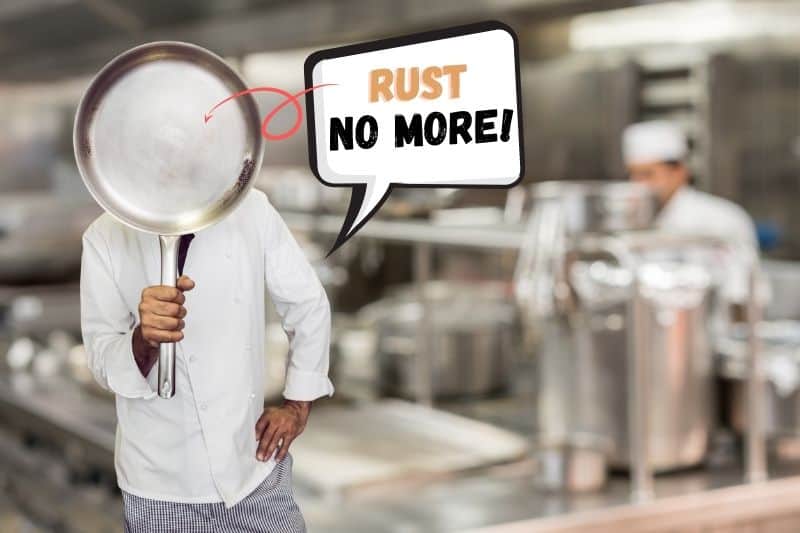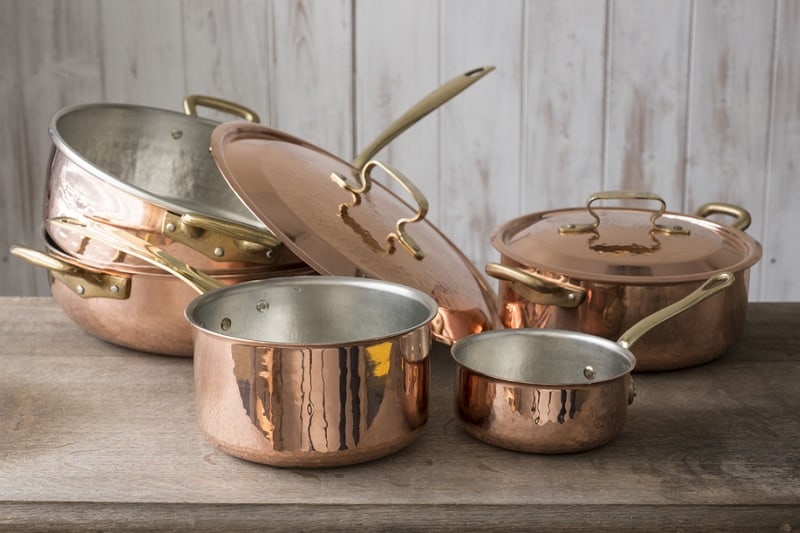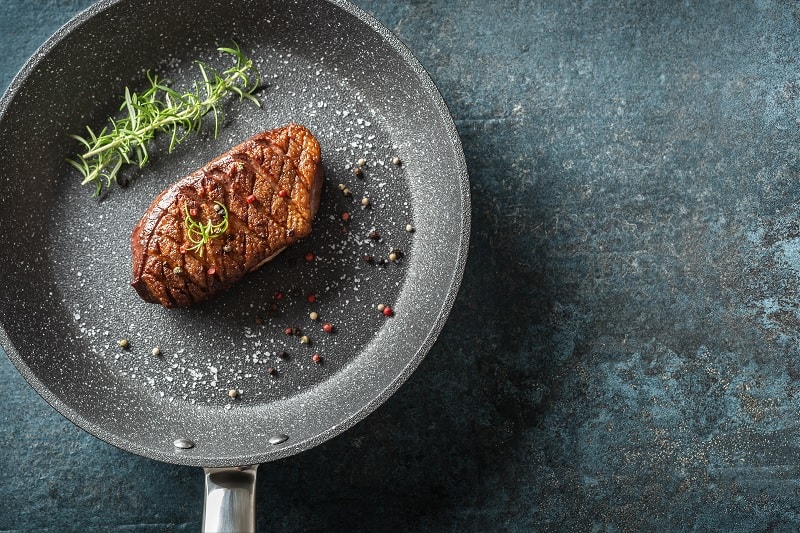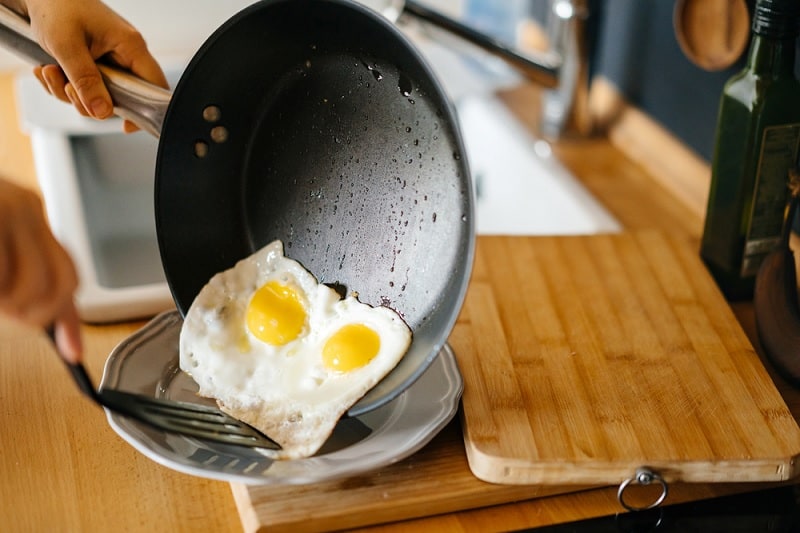We’ve spoken about how chefs love to use carbon steel pans in their restaurants on Chef’s Pick. However, we neglected to mention that many professional chefs also enjoy using stainless steel pans.
So, today, we’re looking at why stainless-steel pans are widely used in the restaurant industry in the UK and why this cookware is preferred by many pros.
Stainless steel cookware is fantastic in a professional kitchen because there is no non-stick coating to worry about. Despite that, stainless steel does have some non-stick properties.
You can also season stainless steel cookware and make it even more non-stick, which is as simple as adding a thin layer of oil to the pan and heating it over a hob until the oil smokes.
Why Choose Stainless Steel Over a Non-Stick Coating?
1. Robust
The major reason professional chefs prefer stainless steel over non-stick pans is that most non-stick coatings cannot hold up to the abuse of a professional kitchen.
For starters, metal utensils are almost exclusively used in pro kitchens. Plus, most chefs sear meat and fish on the hob and then chuck it and the pan into the oven. Both of these things will quickly destroy a non-stick coating.
Stainless steel cookware is extremely hard-wearing. Carbon steel cookware is brilliant in a professional kitchen, but it is very thin and can warp with the heat of the oven and hob.
Of course, carbon steel cookware is very cheap, so if it does warp, it isn’t the end of the world. Stainless steel cookware, however, is thicker, which means it isn’t as affected by the heat of the stove.
2. Heat retention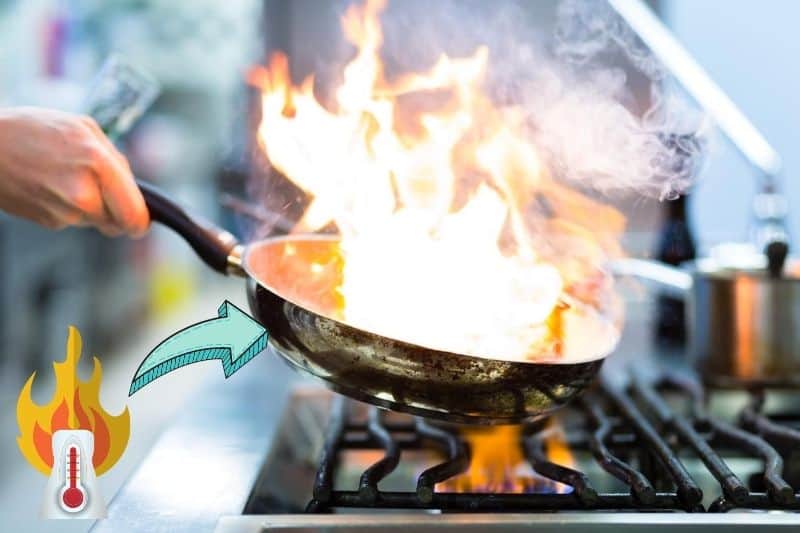
Stainless steel heats up very quickly and evenly, and it holds this heat very well too. This means that you can cook fast and evenly with stainless steel.
Stainless steel cookware tends to be a bit thicker than carbon steel, which lends itself to heat retention nicely. Because the metal is thicker, it will hold the heat in more than carbon steel.
It won’t, of course, hold the heat as well as cast iron, but it is much lighter than cast iron, so it is less tiring to work with if you are using it constantly in a busy kitchen.
3. Stainless steel doesn’t rust
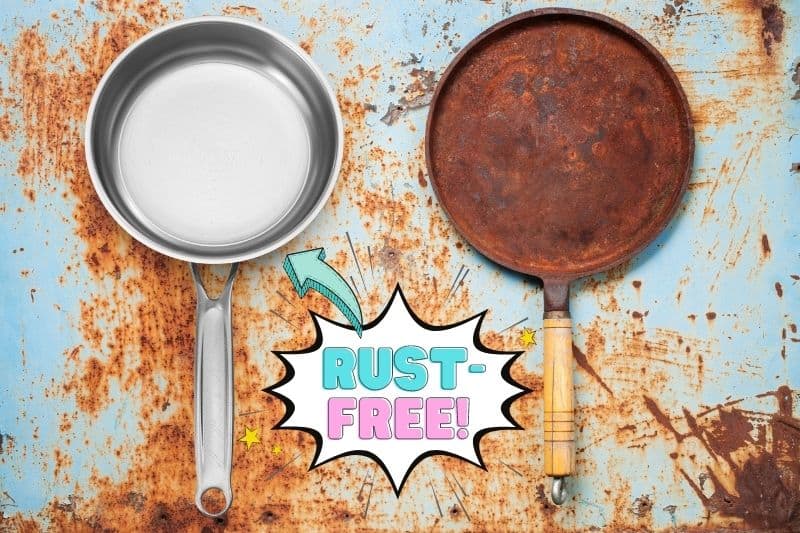
Carbon steel cookware will rust if it isn’t cared for. This means that carbon steel must be properly dried after washing, otherwise small areas of rust can appear.
Food-grade stainless steel does not rust. So, you can wash up the pans and leave them to dry naturally, making it much quicker to wash up dozens of pans an evening.
Should You Use Stainless Steel in Your Kitchen?
Stainless steel cookware sits nicely between carbon steel and cast-iron cookware. It isn’t as robust as cast iron but beats carbon steel. It has excellent heat retention properties but is not as good as cast iron.
Price-wise, stainless steel is comparable with cast iron, and carbon steel is much cheaper than both.
However, this is because carbon steel doesn’t last as long in a professional kitchen as either cast iron or stainless steel. And it won’t rust, which both other types of cookware will if they aren’t properly cared for and seasoned.
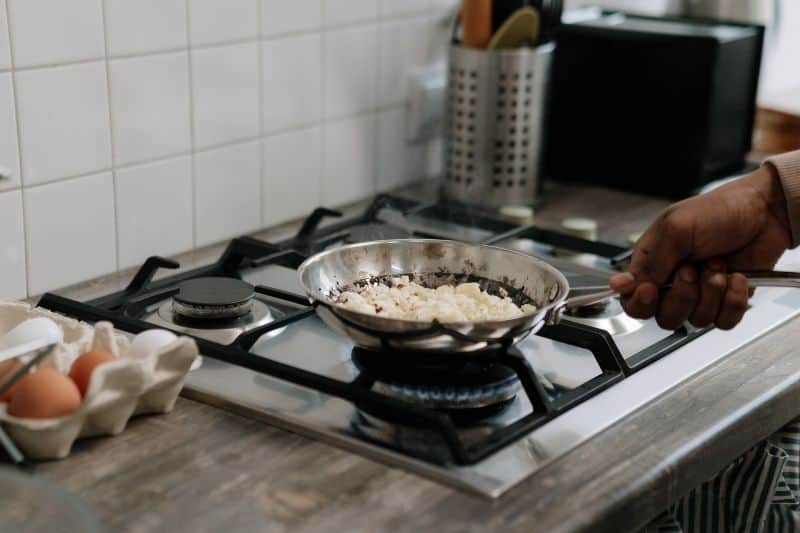
Stainless steel works fantastically in a home kitchen, and many people swear by this cookware. If you season stainless steel, you’ll be able to do most cooking tasks in it, and it will give you the freedom to transfer your food from the hob to the oven easily.
However, most stainless-steel cookware owners will keep a non-stick pan handy for more delicate cooking tasks (like eggs and omelettes, for example). So, stainless steel is a great addition to most home kitchens, but it does have its limitations.
We hope this look at stainless steel cookware and why it is preferred by some professional chefs have been useful. To find out more about stainless steel cookware, please explore Chef’s Pick some more. We have the best stainless-steel pans and pots right here.

Scott is a writer and a passionate home chef. His passion for cooking began when he was 10 years old. Scott has been writing professionally for over five years now and loves to combine his passion for cooking with his day job.

